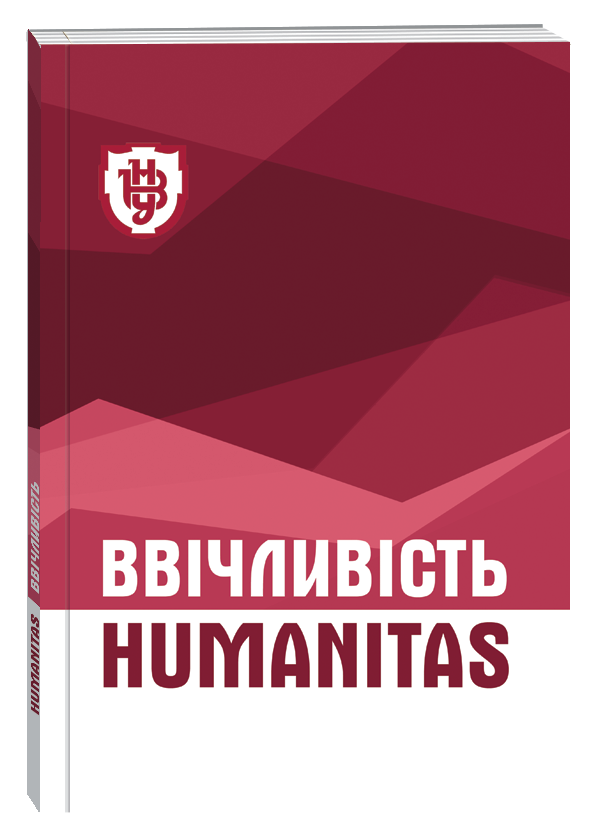RISK FACTORS FOR ADDICTIVE BEHAVIOR OF STUDENTS OF HIGHER EDUCATION INSTITUTIONS
DOI:
https://doi.org/10.32782/humanitas/2022.4.6Keywords:
addictive behavior, addiction, risk factors, prevention, student, higher education institutionAbstract
The purpose of the study presented in the article is to determine the factors that increase the risk of forming addictive behavior of higher education institutions students. It is theoretically substantiated that the formation of addictive behavior during study at a higher education institution may be associated with difficulties in adapting to learning, complicated problems in the family and informal environment. Signs of trouble in various spheres of students’ life have been identified, which may indicate the risk of their deviant behavior: conflicts in the family, formal and informal groups and with teachers, loneliness and lack of support from others, lack of motivation to learn and excessive learning loads. The results of an empirical study, which involved an anonymous survey of university students using Google Forms and statistical analysis of the data obtained, are presented. The study demonstrated the presence of significant correlations between general indicators of family, friendships and university distress, as well as low rates of friendliness and emotional stability determined using the TIPI UKR methodology, and the degree of risk of forming student addictive behavior. It has been proven that the risk of the formation of addictive behavior is associated with overload of work and study against the background of emotional instability in conditions that the student does not receive proper support in the family and in an informal environment. Recommendations for the prevention of addictive behavior of students in higher education institutions are presented: systematic research aimed at identifying risk factors for its formation in a particular institution, the formation of students’ skills of rational organization of education, formation of a positive psychological climate in student groups and creation of conditions for active leisure, introduction of student employment in forms compatible with learning, establishment of a system of social and psychological support for students who face personal problems, conducting trainings on the formation of successful coping strategies, the development of communicative skills and self-control skills of the emotional state.
References
Железнякова Ю. В. Адиктивна поведінка: аналіз наукових підходів. Актуальні проблеми психології. Київ : Фенікс, 2013. Т. 12. Вип. 18. С. 96–103.
Куріння, вживання алкоголю та наркотичних речовин серед підлітків, які навчаються: поширення й тенденції в Україні : за результатами дослідження 2019 року в рамках міжнародного проекту «Європейське опитування учнів щодо вживання алкоголю та інших наркотичних речовин – ESPAD» / О. М. Балакірєва та ін. Київ : ТОВ «ОБНОВА КОМПАНІ», 2019. 214 с.
Кліманська М. Б., Галецька І. І. Українська адаптація короткого п’ятифакторного опитувальника особистості TIPI (TIPI-UKR). Psychological Journal. Volume 5. Issue 9, 2019. С. 57–74.
Михайлишин У. Б. Вплив міжособистісних відносин на формування адиктивноі поведінки у юнацькому віці. Теоретичні і прикладні проблеми психології. 2020. № 3(1). С. 165–183 .
Проблема залежності від соціальних мереж як сучасного виду соціальних відносин в юнацькому віці / Бохонкова Ю.О., Пелешенко О. В., Сербін Ю. В., Леліва В. С. Теоретичні і прикладні проблеми психології та соціальної роботи. 2021. № 3(56) Т.2. С. 101–112 .
Чубіна Т. Д., Косяк С. М., Федоренко Я. А. Поведінкові аномалії в умовах трансформації сучасного суспільства. 2022. URL: http://baltijapublishing.lv/omp/index.php/bp/catalog/download/222/5951/12459-1?inline=1 (дата звернення: 23.09.2022).
Global prevalence of gaming disorder: A systematic review and meta-analysis / Stevens M.W.R., Dorstyn D., Delfabbro P. H.,. King D. L. Australian and New Zealand Journal of Psychiatry. 2021. P. 553–568.
Social Media Addiction Statistic. TRUELIST. 2022. URL: https://truelist.co/blog/social-media-addiction-statistics/(дата звернення: 23.09.2022).
Teenage Drug Use Statistics: Data & Trends on Abuse. NCDAS. 2022. URL: https://drugabusestatistics.org/teendrug-use/ (дата звернення: 23.09.2022).
Santangelo O. E., Provenzano S., Firenze A. Risk Factors for Addictive Behaviors: A General Overview. International Journal of Environmental Research and Public Health. 2022 Jun; 19(11): 6583. URL: https://www.ncbi.nlm.nih.gov/pmc/articles/PMC9180507/pdf/ijerph-19-06583.pdf (дата звернення: 23.09.2022).







